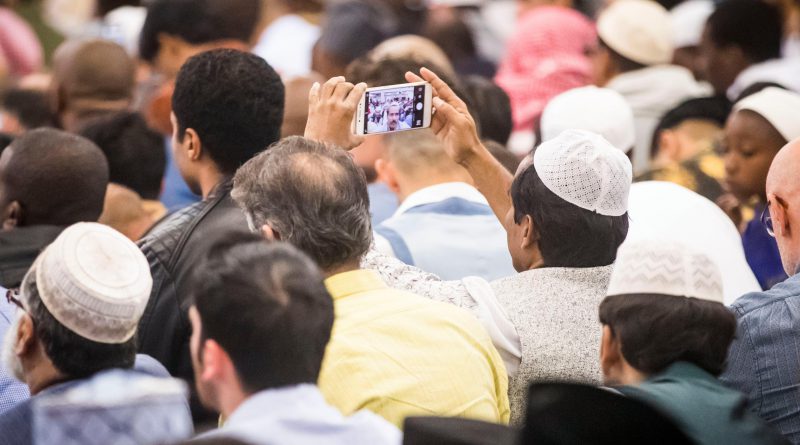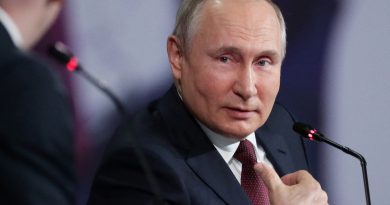OPINION: The Need for Progressive Muslims
by Arshia Malik
There are various means for progressive Muslims to fulfill this role, such as providing an alternative narrative to the extremist ideologies that are often used to justify violence and radicalization.
Progressive Muslims are individuals who identify as Muslim and who are committed to promoting a more inclusive, modern, and forward-thinking interpretation of Islam. They often prioritize issues such as gender equality, social justice, and human rights, and advocate for a more open and pluralistic approach to Islam.
Progressive Muslims are often critical of conservative interpretations of Islam, which they believe can be used to justify discrimination, oppression, and violence. Instead, they promote an interpretation of Islam that is consistent with universal values of justice, equality, and compassion. They also recognize the diversity within the Muslim community and that different interpretations of Islam and religious practices do exist.
Progressive Muslims may also be involved in the Islamic reformation, which is the process of re-evaluating the conventional understanding of Islam and adapting it to the needs and values of contemporary societies. They often seek to promote a more critical, nuanced, and inclusive understanding of Islam, which considers the diversity of perspectives within the Muslim community and the changing needs of contemporary societies. It is important to note that progressive Muslims come from different backgrounds and have different views, and the term progressive Muslims is not a monolithic concept.
The need for progressive Muslims is important for several reasons. First, progressive Muslims can help to challenge and dispel stereotypes and misconceptions about Islam and Muslims. They can provide a counter-narrative to the extremist ideologies that are often associated with the religion. Secondly, progressive Muslims can help to promote a more inclusive and tolerant interpretation of Islam. They can work towards creating a more equitable and just society by promoting progressive values such as gender equality, human rights, and social justice. Thirdly, progressive Muslims can help to bridge the gap between different communities and promote interfaith dialogue and understanding. They can work towards creating a more harmonious society by fostering mutual respect and understanding between people of different religions and backgrounds.
Progressive Muslims can also help to push for progressive changes and reforms within Muslim-majority societies. They can advocate for democratic and human rights, freedom of speech and press, and other progressive values that are essential for the development of a healthy and prosperous society. The need for progressive Muslims is crucial in today’s world as they can play a vital role in challenging stereotypes, promoting inclusivity, fostering interfaith understanding, and advocating for progressive change.
There are various means for progressive Muslims to fulfill this role, such as providing an alternative narrative to the extremist ideologies that are often used to justify violence and radicalization. By promoting a more inclusive and progressive interpretation of Islam, they can challenge the extremist ideologies that are used to recruit vulnerable individuals. Progressive Muslims can promote education and critical thinking within Muslim communities, encouraging individuals to question and evaluate extremist ideologies, and promoting the importance of critical thinking and reasoning.
Fostering interfaith dialogue is an important aspect of community building especially among societies where the social fabric has been torn asunder such as the Kashmir Valley where indigenous Kashmiri Pandits were ethnically cleansed by Islamist radicals throughout the 1990s and are still targeted for returning to the Valley. Progressive Muslims on the ground have been working to foster interfaith dialogue and understanding, promoting mutual respect, and understanding between different communities, and reducing the risk of radicalization that can stem from social isolation and marginalization.
Advocacy for social justice and human rights is also important work done by progressive Muslims, by highlighting the importance of these values in Islam and promoting them as an alternative to the extremist ideologies. Progressive Muslims support community-based programs that aim to prevent radicalization, such as mentoring programs, youth development programs, and programs that promote social cohesion and integration. For this, some prominent voices among Muslims themselves will have to engage in political activism to advocate for progressive policies and laws that can help to prevent radicalization and promote social justice and equality. That kind of activism can lead Muslim societies towards progress, modernization, innovation, tolerance, and critical thinking with some methods promoting a culture of experimentation and encouraging new ideas and perspectives.
Innovation can help build bridges between different communities and promote interfaith dialogue and understanding which the media and technology can then use to reach out and educate the public on progressive values, and to counter the spread of extremist ideologies.
In conclusion, progressive Muslims play a vital role in promoting a more inclusive, modern, and forward-thinking interpretation of Islam. They are committed to promoting progressive values such as gender equality, social justice, and human rights, and advocate for a more open and pluralistic approach to Islam. They can help to challenge stereotypes and misconceptions about Islam and Muslims, promote interfaith dialogue and understanding, and push for progressive changes and reforms within Muslim-majority societies. Additionally, progressive Muslims can play a crucial role in resisting extremism and radicalization in Muslim societies by promoting education and critical thinking, fostering interfaith dialogue, advocating for social justice and human rights, and supporting community-based programs.
Overall, the role of progressive Muslims is crucial in promoting a more inclusive and equitable society, and in fostering mutual understanding and respect between different communities. It is important to recognize that the term “progressive Muslims” encompasses a wide range of individuals with different views, but who all share a commitment to promoting progress, modernization, innovation, tolerance, and critical thinking within Muslim societies.
Arshia Malik is a Delhi-based writer, blogger and social commentator with focus on women issues and conflicts in societies with a particular focus on South Asia. She makes her living as a school teacher and is an avid collector of literature. Her fields of interests are education, minority and child rights, secularism and tolerant attitude in a fast developing world.



